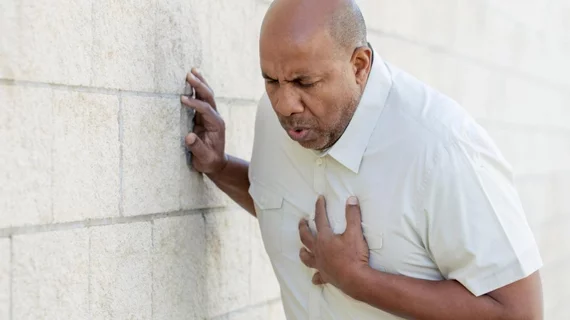STEMI patients with COVID-19 face an elevated risk of death
COVID-19 is associated with a heightened risk of in-hospital mortality among STEMI patients, according to new data published in JAMA.
Researchers examined data from the Vizient Clinical Database, analyzing adult patients admitted to the hospital between January 2019 and December 2020 with out-of-hospital STEMI or in-hospital STEMI.
The out-of-hospital STEMI group included 76,434 patients treated at one of 370 facilities. Seventy-percent of patients were men, and the mean patient age was 64 years old.
A total of 551 of those patients had COVID-19, and they were matched with 2,755 patients who did not have COVID-19. In-hospital mortality rates were 15.2% for patients with COVID-19 and 11.2% for patients without COVID-19.
The in-hospital STEMI group, meanwhile, included 4,015 patients treated at one of 353 facilities. Sixty percent of patients were men, and the mean patient age was 58.3 years old.
A total of 252 of those patients had COVID-19, and they were matched with 756 patients who did not have COVID-19. In-hospital mortality rates were 78.5% for patients with COVID-19 and 46.1% for patients without COVID-19.
Among patients with out-of-hospital STEMI, the authors found that a COVID-19 diagnosis made "no significant difference" on the chance of patients undergoing primary percutaneous coronary intervention.
Patients with in-hospital STEMI and COVID-19, on the other hand, were substantially less likely to have invasive diagnostic or therapeutic coronary procedures than those without COVID-19.
"Among patients with out-of-hospital or in-hospital STEMI, a concomitant diagnosis of COVID-19 was associated with significantly higher rates of in-hospital mortality compared with patients without a diagnosis of COVID-19 from the past year,” wrote lead author Marwan Saad, MD, PhD, of the Lifespan Cardiovascular Institute in Providence, Rhode Island, and colleagues. “Further research is required to understand the potential mechanisms underlying this association."
Read the full study here.
